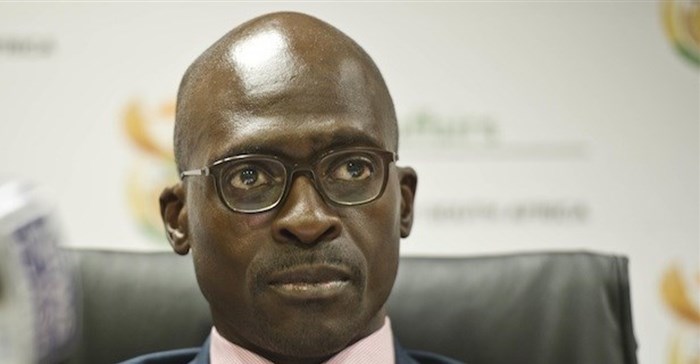Gigaba appoints Buthelezi to be chairman of PIC
Deputy Finance Minister Sfiso Buthelezi has been appointed as chairman of the Public Investment Corporation (PIC) and the terms of three other non-executive directors renewed, the PIC and finance ministry confirmed.

Minister of finance, Malusi Gigaba
The appointments bring to an end a two-month hiatus in which the board was unable to meet as it did not have a quorum.
The PIC, which manages funds on behalf of the Government Employees Pension Fund (GEPF) and other government funds, is the biggest investor in the economy, with R1.87-trillion under management. The composition of the board, which is appointed by the finance minister, was keenly watched as the corporation is subject to fierce lobbying by private business seeking funding.
Of the 10-member board, two vacancies remain following the retirement of Roshan Morar and Trueman Goba in March.
Deon Botha, head of corporate affairs for the PIC, said that at the annual meeting in March two nonexecutive directors were to retire and three nonexecutive directors had finished their first term.
"After his appointment, new Finance Minister Malusi Gigaba had to start the process of confirming the continuation of the terms of the three whose first terms had finished, before the board could resume its activities. This process has been concluded and the board is ready to resume," Botha said.
Finance ministry spokesman Mayihlome Tshwete confirmed Gigaba had appointed Buthelezi as chairman. The chairman vacancy arose following the dismissal of former deputy finance minister Mcebisi Jonas from the Cabinet in April.
A priority for the new board will be a request from South African Airways for funding.
Treasury acting director general Dondo Mogajane said in Parliament, investment by the PIC was one of the options being considered for SAA.
An investment in SAA would be one of its most controversial yet. The bulk of funds invested by the PIC belong to the GEPF. As the fund is a defined benefit fund, the state is obliged to make any shortfall in pension benefits that may arise, due to poorly performing investments.
Source: Business Day